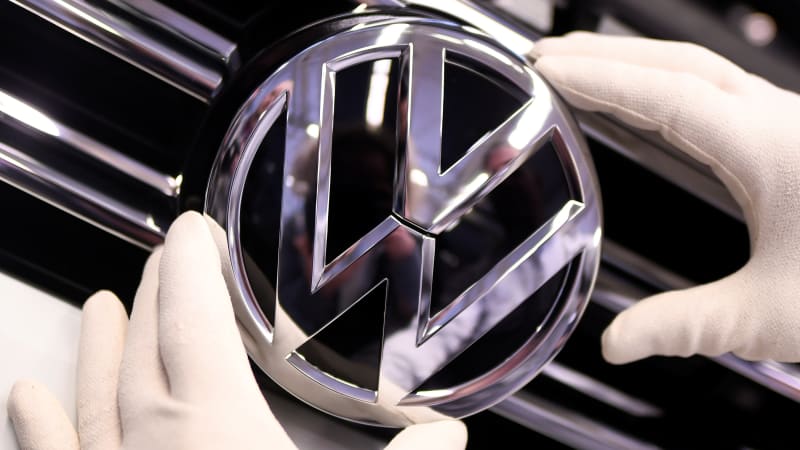VW masters dry-coating process that could slash EV battery cost

BERLIN — Volkswagen and a technology partner have mastered a battery manufacturing process called dry coating which if scaled up could cut the cost of cell production by hundreds of millions of euros a year, its battery chief said on Friday.
The carmaker, which is working with printing press manufacturer Koenig & Bauer AG on the technology, said the two companies are the first to perfect the procedure for both the positive and negative electrode.
“No one else can do this today,” battery chief Thomas Schmall said at a media roundtable.
In traditional battery manufacturing, materials for the cathode — or positive electrode — and anode — negative electrode — are applied to a carrier foil via a chemical paste mixture that needs to dry, requiring high amounts of energy.
Dry-coating eliminates that step with an adhesive that does not require drying, Schmall explained.
Tesla, which obtained a similar process through acquiring startup Maxwell Technologies in 2019, has so far been able to dry-coat the anode, but is still having issues with the cathode, sources told Reuters in March.
Volkswagen said it has produced several hundred cells with its method on a pilot line and should be ready for industrial production by 2027.
Together with scaled-up production and cheaper raw materials, the carmaker hopes the procedure will help bring down cell costs by around 50%, Schmall said.
Its cell plants under construction in Germany, Spain and Canada will still have drying lines but can be retrofitted to remove them at a later date, PowerCo Chief Operating Officer Sebastian Wolf added, freeing up around 15% of factory floor space.


